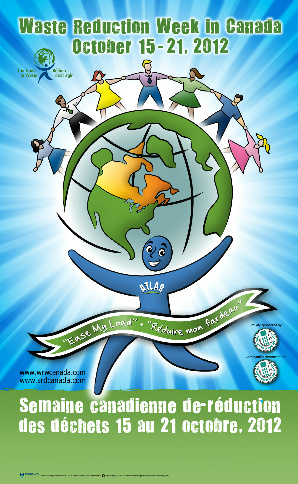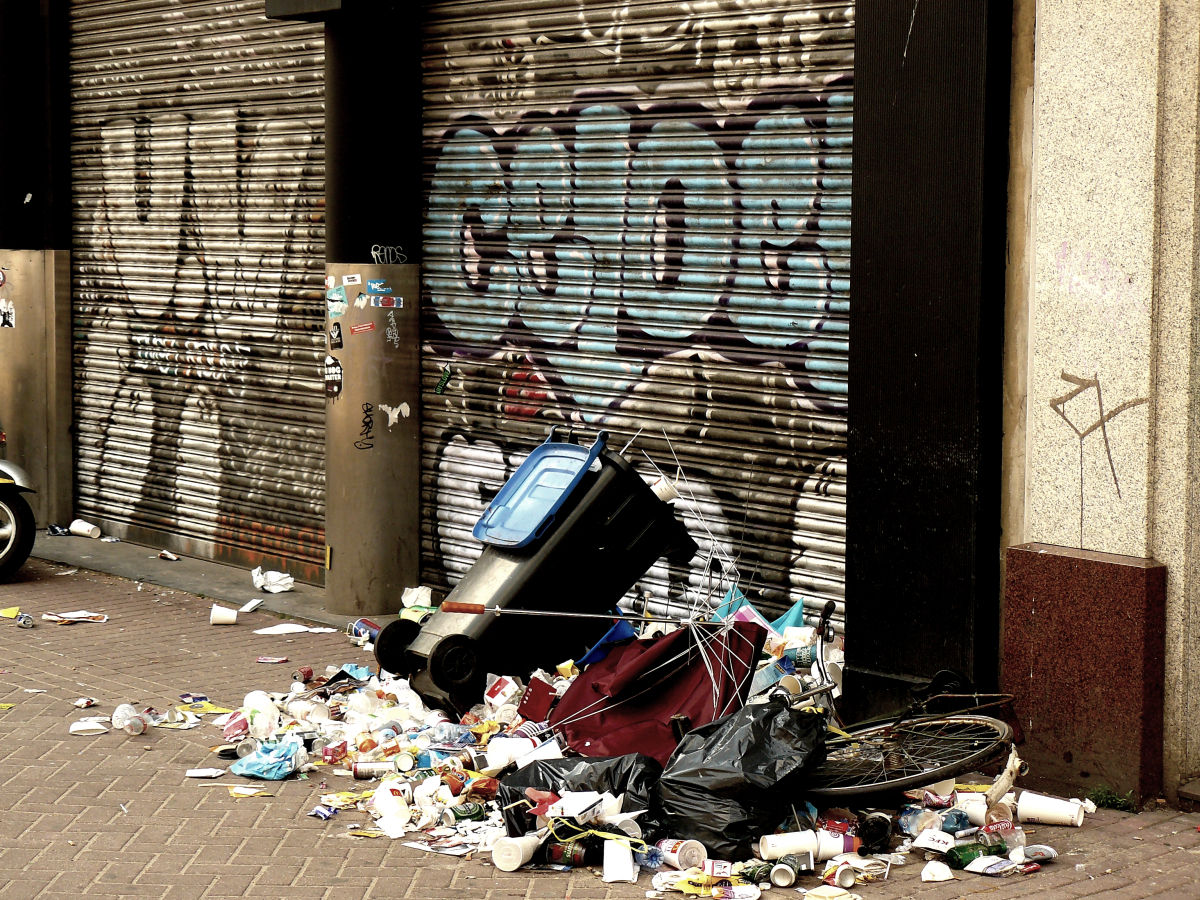 This week Canadians across the country are marking Waste Reduction Week and are challenging their schools, businesses and governments to rethink how they consume and what they discard. The goal of the campaign is to engage and empower Canadians to reduce, reuse and recycle waste and calls on consumers to adopt more environmentally conscious choices. With many landfills in this province approaching capacity, reducing or eliminating waste is one solution to many of environmental challenges such as the loss of natural resources and water pollution.
This week Canadians across the country are marking Waste Reduction Week and are challenging their schools, businesses and governments to rethink how they consume and what they discard. The goal of the campaign is to engage and empower Canadians to reduce, reuse and recycle waste and calls on consumers to adopt more environmentally conscious choices. With many landfills in this province approaching capacity, reducing or eliminating waste is one solution to many of environmental challenges such as the loss of natural resources and water pollution.
"Each Canadian throws out about 1670 lbs. or the weight of over 8 adult men every year, and communities are struggling to find ways to dispose of that waste—much more than other countries of Canada's size and wealth," says Jo-Anne St. Godard, Spokesperson for Waste Reduction Week in Canada and Executive Director, Recycling Council of Ontario. "Waste Reduction Week is a campaign that asks Canadians to rethink what we buy, examine how we live and consider what we dispose of to landfill."
Reducing waste is inherent within the Islamic tradition. There are numerous references in the Quran that warn against all types of waste from food, to money to time.

O children of Adam, take your adornment at every masjid, and eat and drink, but be not excessive. Indeed, He likes not those who commit excess. (Surat Al-'A`rāf, 7:31)

Indeed, the wasteful are brothers of the devils, and ever has Satan been to his Lord ungrateful.( Surat Al-'Isrā', 17:27)
The Prophet Muhammad (SAW) also cautioned against wasting time, something that may not be as material but important nonetheless.
“There are two blessings which many people do not make the most of and thus lose out: good health and free time.” (Bukhaari)
So what can you do to establish waste-reduction habits? The Waste Reduction Week Campaign provides resource kits for schools, businesses and governments. Some of the suggestions provided by the Saskatchewan Waste Reduction Council include:
- Buy only what you need. Before you buy any item, ask yourself if you really need it, or could you make do with what you already have?
- The "throw-away" convenience of some products is not worth the environmental price that is paid. Avoid paper towels, plates and cups, throw-away lighters and razors, and disposable diapers. Purchase the multi-use alternatives instead.
- Buy durable, long-lasting goods. Initially the cost may be higher, but in the long run you can save.
- Buy for the contents, not the container. Some packaging is necessary — you can't carry flour home in your hand — but these days many products have unnecessary or excessive packaging.
- Many things around the house can be saved and reused — string, plastic containers, glass containers, gift wrap, shopping bags. If there are things you can't use, consider giving them to others who can.
- Instead of throwing it out, fix it up! Repair broken toys, furniture and appliances to extend their useful life.
- Share with neighbours and friends those large expensive things that you use only once in a while, such as lawn mowers, other gardening equipment, and tools.
- 20% of the food we buy ends up in the garbage. Keep track of what you've got on hand so that you use groceries while they're still fresh.
Collectively we all have a responsibility to ensure that we minimize waste and ensure that the blessings of Allah are not taken for granted. By evaluating our purchasing and consumption habits, it becomes easy for us to identify and change our behaviour, and safeguard our resources for future generations.
Waste Reduction Week in Canada is organized by a coalition of non-governmental, non-profit groups and government organizations from each of the 13 provinces and territories across Canada.
Photo credit from AmsterSam

